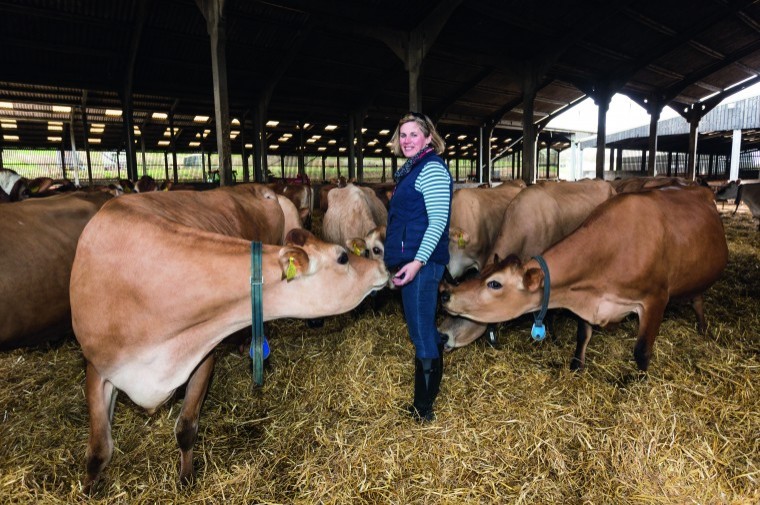I can honestly say that we’ve well and truly been to Badminton. What a week. We walked over 100 miles in six days and partied equally hard. Exhausted is an understatement.
We have come back to reality with a bump. First cut silage is nearly complete and the yields so far have been good. The maize is all drilled and ready for a drop of rain (fingers crossed).
The digestate experiment that I wrote about last month came to an abrupt halt after many false starts and failed promises. The inevitable outcome came about and the agreement that was made in my kitchen last December never came to fruition.
Grumpy was very GRUMPY. Buying fertiliser “on spot price” was always going to cost us a lot of money and indeed cost us a lot more than pre-buying fertiliser last year. Grumpy has always said that relying on others is a huge risk and this definitely proved to be the case when those who had promised so much failed to deliver one drop.
Thankfully after a dose of fertiliser the crops are now back on track and looking well, but it has been a huge cost to the business.
It has become apparent to all that the cost of fertiliser is directly proportionate to the cost of gas. We need to find other avenues that we can become more reliant on in our own natural oil and gas reserves.
In a previous article I mentioned how short-sighted the cancellation of the Cambo oil field project now appears. It is also interesting to note that it takes 10 to 15 years from the commissioning of a new oil field for that oil to come onstream. In contrast, it only takes eight to 12 weeks for gas from a newly-commissioned shale gas field to hit the marketplace.
The UK sits on some of the largest shale gas sites in Europe; with the correct political will, this gas could be lowering our gas prices within months. I fail to understand why the Government continually ignores this problem.
Shale gas, first extracted in New York in 1821, is a natural gas stored deep underground in a fine-grained sedimentary rock. It is extracted using a process known as hydraulic fracturing or fracking. This involves drilling long horizontal wells in shale rocks more than a kilometre below the surface.
The Government has decided to pay 50% of our BPS in July and the remainder in December to help farmers in the current climate. This is very welcome and will be appreciated by all concerned, but in a few years the BPS will no longer exist so, what will the future hold? A token gesture by the Government, I feel.
When will the Government and the population value the food they put into their mouths? Food wastage is still in abundance even with the increased cost of food. Farmers seem to be benefiting from the increase but are losing out thanks to the increased cost of raw materials. They are, in fact, essentially treading water.
Badminton implemented a ‘no plastic bottle’ theme to be as environmentally friendly as possible, but traders bypassed this ruling by using plastic glasses instead. The plastic usage/wastage is out of control in this country. People need to start taking reusable bottles everywhere. We all put our phones in our pockets before we leave; we just need to pick up a water bottle or cup as well.
Until next time, stay safe and take care.




